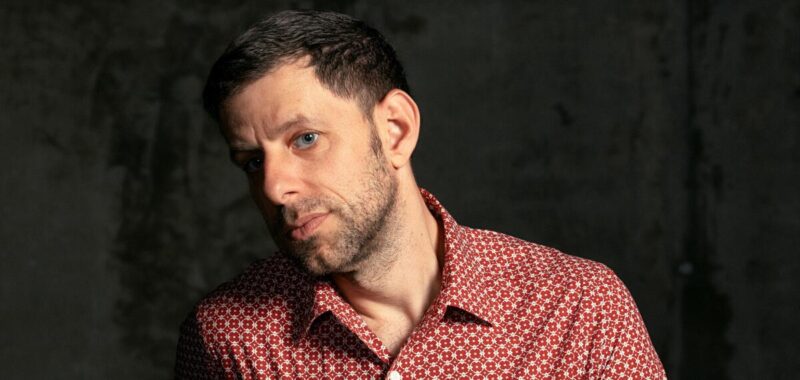The Metropolitan Opera has announced that Yuval Sharon — co-founder of the revolutionary Los Angeles opera company the Industry — will direct a new production of Wagner’s “Ring” cycle beginning in 2028, culminating in the full four-opera cycle in 2030. Sharon also will direct a new production of Wagner’s “Tristan und Isolde” in 2026.
An opera company’s stature, and even an art capital’s cultural repute, can rise or fall depending upon its ability to mount a “Ring” cycle. Los Angeles Opera has had but one. Its influence, for better or worse, can last decades.
Although the Met has a glorious history of magnificently sung and conducted “Rings,” it has never had an important production. Its theatrically ineffective and technically problematic last one, directed by Robert Lepage, became a running joke. Certain to shake things up, Sharon is a brilliantly disruptive Wagnerian who has staged an exceptional, transgressive “Lohengrin” for the Bayreuth Festival and an arrestingly futurist act of “Die Walküre,” from the “Ring,” at the Hollywood Bowl.
L.A. Opera’s production by the avant-garde German director Achim Freyer, on the other hand, was one of the most imaginative (and controversial) “Ring” productions attempted in the U.S., and Sharon was Freyer’s assistant director. The results of that “Ring,” the center of a citywide arts festival, proved decidedly mixed. The expense, which took years to pay off, put the company in what has become a state of perpetual financial caution and aversion to risk. Sharon has never been invited back by the company.
But it was a radical artistic success that inspired Sharon to create the Industry, which launched his career. That led the L.A. Phil to bring Sharon on board for three years as a kind of theatrical disruptor, where his imagination could soar. During that time, the L.A. Phil produced noteworthy Sharon stagings of Lou Harrison’s “Young Caesar,” Meredith Monk’s “Atlas” and John Cage’s ”Europeras 1 & 2” — bringing into the repertory three of the most important and influential neglected American operas that companies hadn’t dared to touch.
Will the significance of the Met poaching Sharon be a wake-up call for L.A.? In a phone interview, Sharon said that as he’s begun thinking about his “Tristan,” his inspiration has been to further ponder the spiritual depth that he experienced with the L.A. Phil’s “Tristan Project,” created by video artist Bill Viola, director Peter Sellars and conductor Esa-Pekka Salonen as an uniquely L.A. artistic approach to Wagner that also has been taken up by Gustavo Dudamel.
How this will play out in New York is anybody’s guess. Will the Met have the nerve and dedication to fulfill Sharon’s audacious visions? Will New York’s traditional opera audience put up with them? The one time the Met tried a remarkable Wagner staging, Robert Wilson’s production of “Lohengrin,” it proved an audience turnoff.
The company has promised Sharon great singers, including Norwegian soprano Lise Davidsen as Isolde and, in the “Ring,” as Brünnhilde. The Met’s showy music director, Yannick Nézet-Séguin, will conduct. (The Met also announced that his contract has been extended though 2030.) In the past, Sharon has worked with two of our greatest Wagnerians, the well-established Christian Thielemann (“Lohengrin”) and the promising Dudamel (“Walküre”).
If the Met gives Sharon what he needs at the most uncompromisingly profound and challenging levels — a big, big if — then his Wagner could have an enormous influence on reshaping New York’s artistic landscape. The significance of Sharon’s “Ring” commencing a few months before the L.A. Cultural Olympiad, moreover, puts us on alert. We’ve lost a big one with Sharon, who is currently artistic director of Detroit Opera and now is taking on the Met’s most ambitious and noteworthy projects. Can we still muster such ambition? You tell me.

